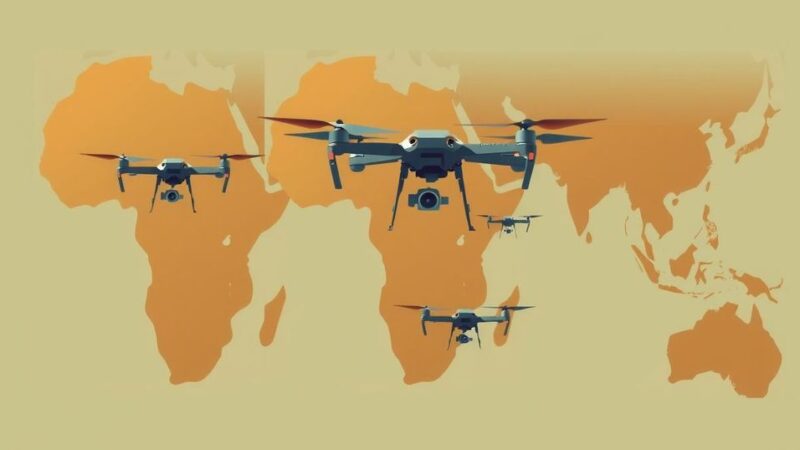Artificial intelligence is revolutionizing healthcare in Kenya by improving diagnostics, treatment, and patient care, particularly in underserved regions. Though still in its early stages, AI enhances surgeons’ capabilities, minimizes human error, and facilitates personalized medicine. Furthermore, ethical considerations must be balanced while maximizing AI’s benefits to the healthcare system.
The integration of artificial intelligence (AI) within healthcare in Kenya represents a transformative shift towards improved patient care. Although the adoption is nascent, AI systems are anticipated to enhance surgeons’ capabilities, minimize human errors, and ultimately lead to safer patient outcomes. This technological advance is substantially benefitting diagnostics, treatment, and care, particularly in under-resourced regions.
AI tools facilitate enhanced diagnostic accuracy by identifying diseases such as tuberculosis and pneumonia, even in remote settings where specialist access is limited. By supporting local doctors in their decision-making processes, AI ensures quicker and more precise diagnoses, thereby elevating patient outcomes across various Kenyan communities.
In preventative healthcare, AI assists physicians in predicting health risks such as heart disease and diabetes by scrutinizing patient data. The integration of insights generated by AI enables healthcare providers to shift towards early intervention strategies, moving from a reactive to a preventative healthcare model, effectively reducing complications and fostering better long-term health outcomes.
Additionally, AI is paving the way for personalized medicine by examining genetic data and helping doctors recommend treatment plans based on an individual’s unique history, genetics, environment, and lifestyle. This personalized approach is particularly advantageous in managing conditions such as malaria and HIV, ensuring that treatments are both effective and appropriate for each patient.
AI-assisted robotic surgery is also gaining traction in Kenyan hospitals, including the Nairobi Hospital and the Aga Khan University Hospital. These sophisticated systems enhance precision in surgical procedures, leading to faster recovery times. While the technology enhances surgical outcomes, its early incorporation hints at broader future use.
As the implementation of AI in healthcare expands, ethical considerations concerning algorithmic bias and the indispensable human touch in medical care arise. It is crucial for AI to augment healthcare professionals’ empathy and judgment rather than replace them.
In summary, as AI continues to evolve within the Kenyan healthcare landscape, its potential to enhance accessibility and efficiency, especially in rural locales, becomes increasingly evident. Although challenges remain, the technology’s promise to revolutionize patient care underscores its essential role in the future of healthcare in Kenya.
The adoption of artificial intelligence in the Kenyan healthcare sector heralds a new era of improved patient care and diagnostic accuracy. This technology provides significant advancements in disease detection, personalized treatments, and surgical precision. However, ethical considerations surrounding AI’s implementation need careful attention. Ultimately, AI has the potential to address crucial challenges and enhance healthcare accessibility, making it a vital component for the future of healthcare in Kenya.
Original Source: eastleighvoice.co.ke






